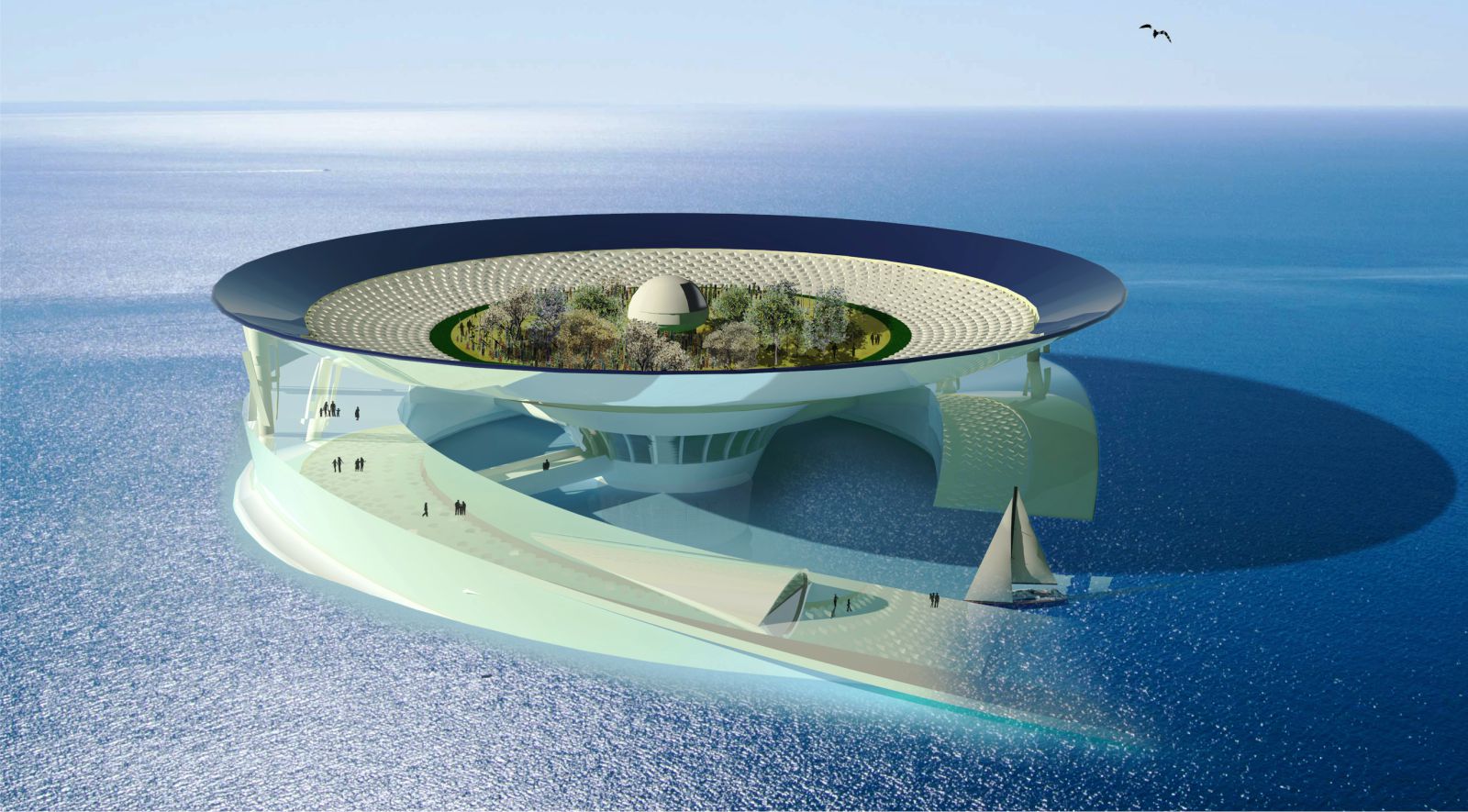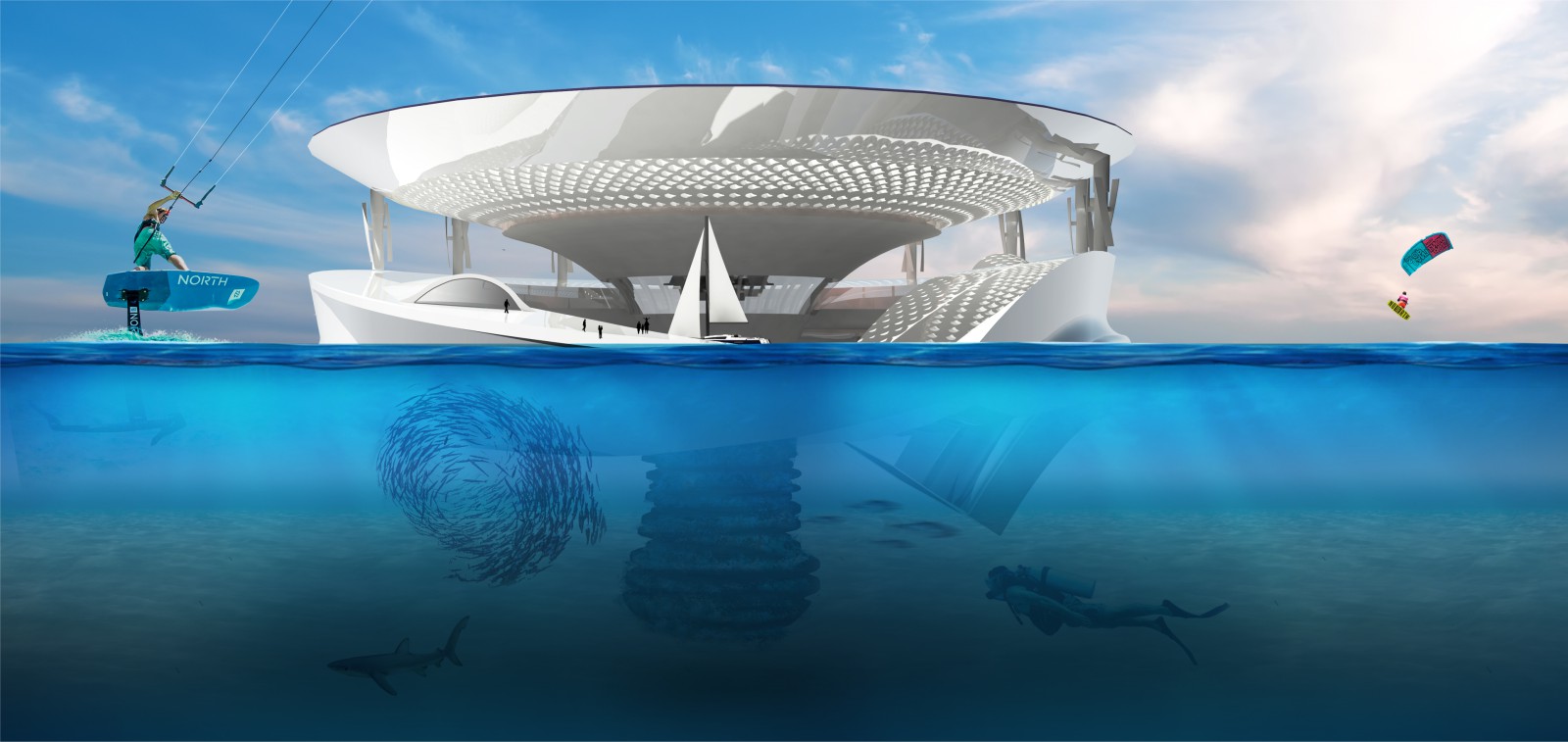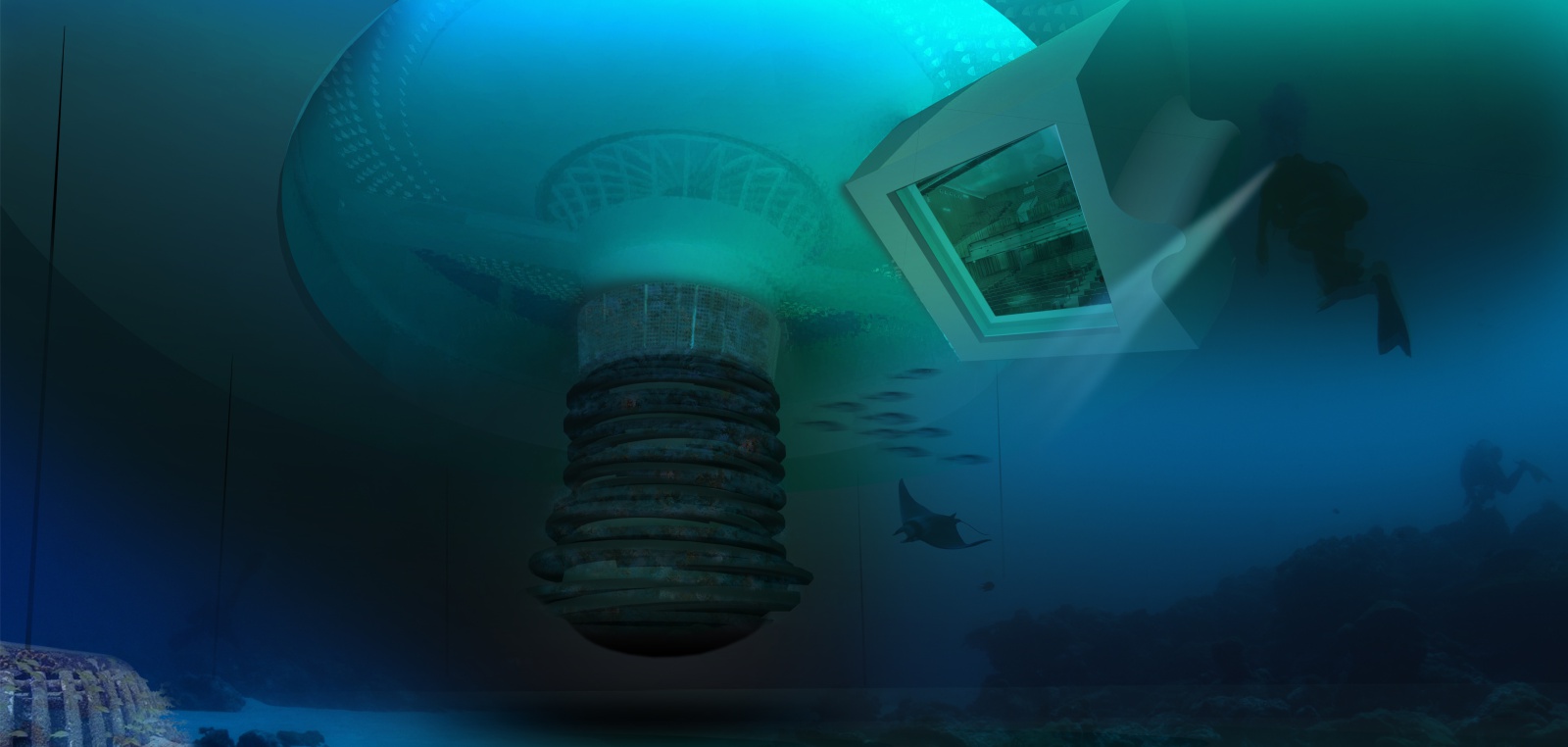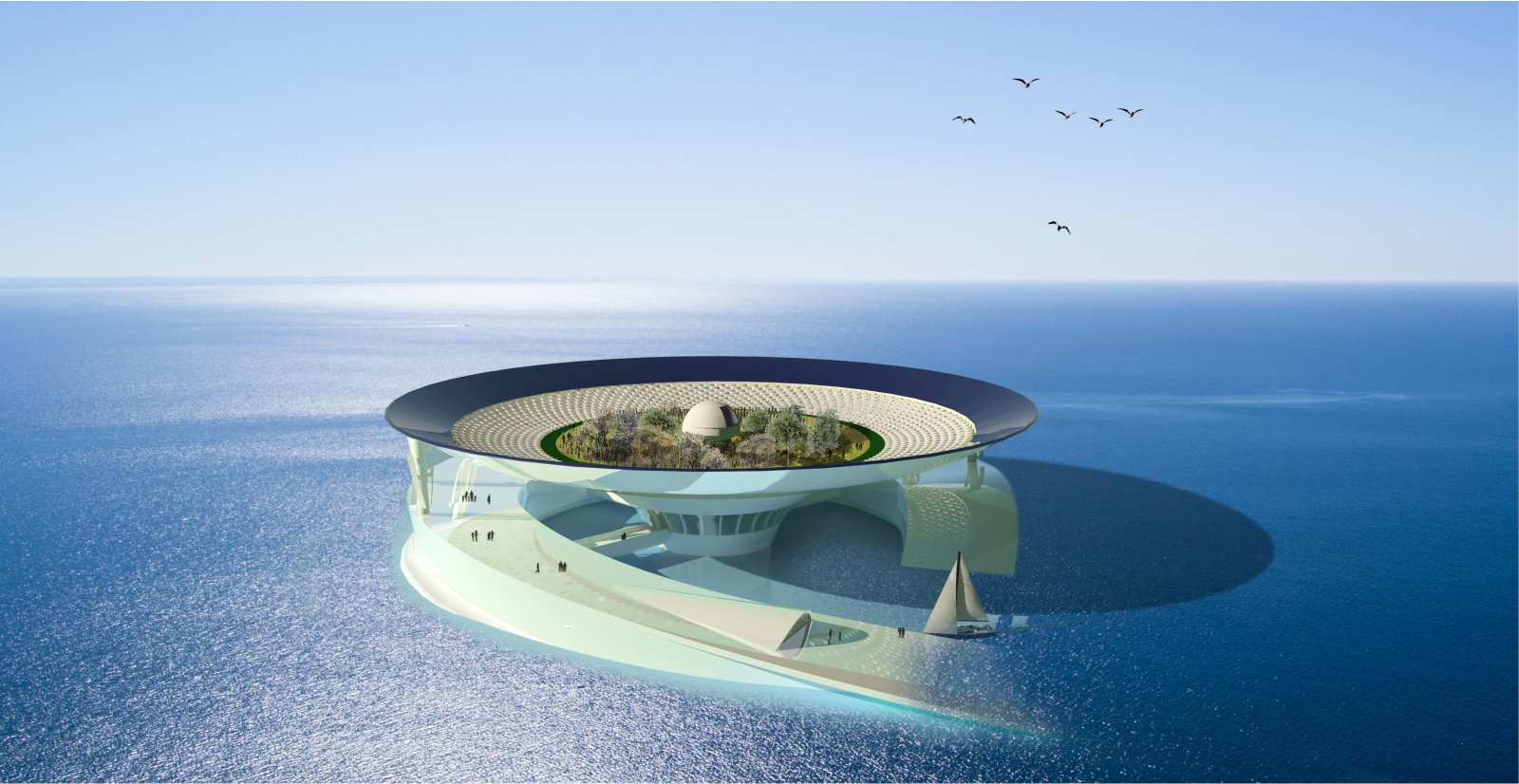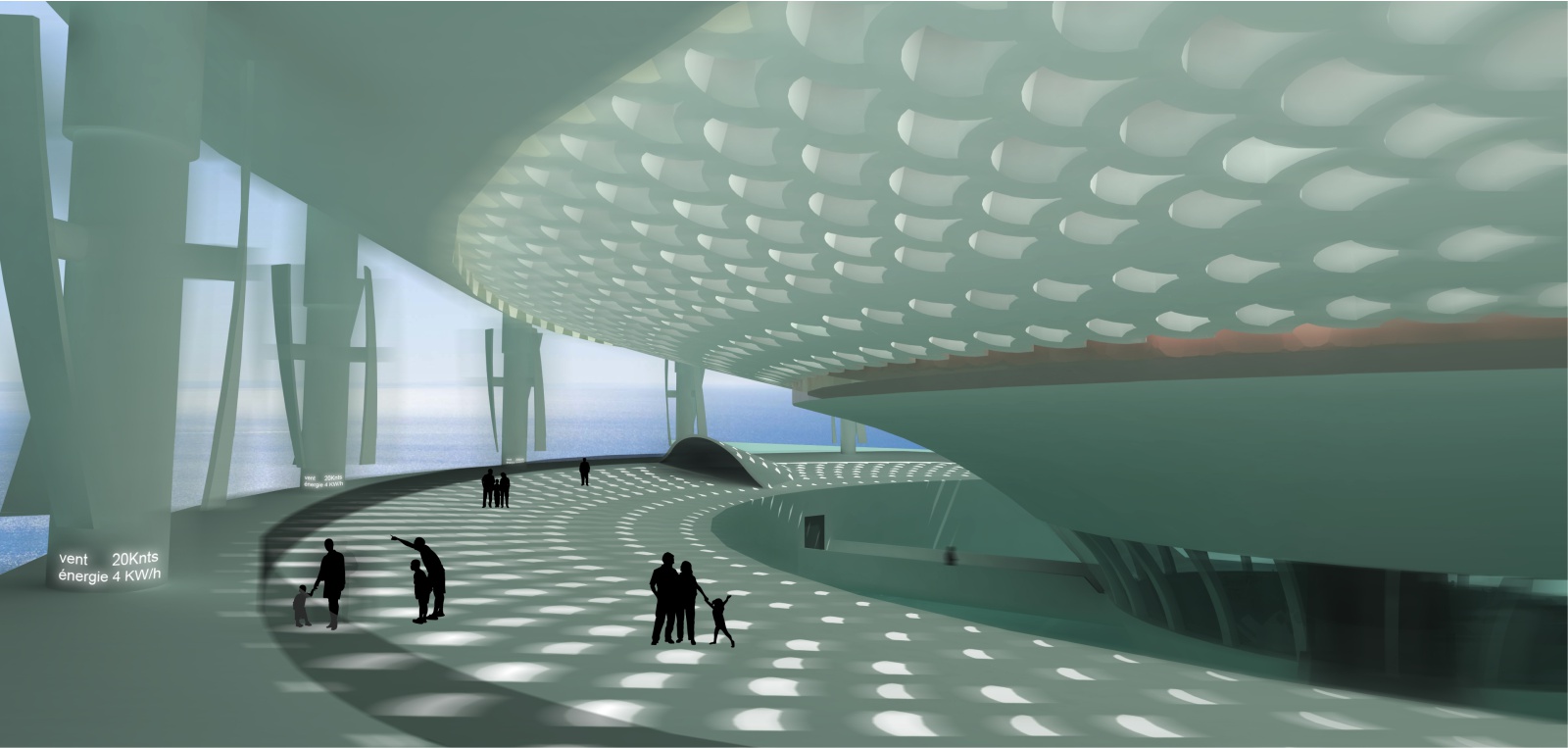The phenomenon of coastal erosion is a major issue for the development of the Mediterranean coast, subject to strong demographic pressures. Faced with marine submersion and the retreat of the coastline (-250Ha since 1945 in Occitanie, France), we have several options: fight the rising waters… or imagine new territories, mobile, intelligent, responsible. If the sea comes to us, why not go to the sea? There are many challenges:
• Autonomous in energy (solar / wave / wind)
• Autonomous in food production (permaculture + aquaculture)
• Autonomous in waste management (organic waste = biomass + fertilizer)
• Autonomous in water management (rainwater collection + desalination by humidification / dehumidification)
• Unlike the artificial islands built by embankment, SEA STEM is a mobile, intelligent territory, with minimal impact on its environment.
The choice of the initial location takes into account the following factors:
Wind statistics
Near the coast (14km)
Depth (50m)
Absence of underwater relief
The connection with the port of Palavas is provided by electrically powered foil shuttles, which can carry up to 50 people. The trip is completed in 20 minutes. The Gulf of Aigues Mortes has the specificity of having no underwater relief. It is a vast sandy plain. In this environment, underwater life seeks refuge to develop in safety.
The submerged part of SEA STEM is an artificial reef with variable geometry, which offers a suitable habitat for different species, depending on their stage of development. The peculiarity and feasibility of the project is based on a mixed program: a scientific research platform coupled with an eco-tourism receptive. The income generated allows the partial financing and operation of the project.
• Different participatory activities are offered to visitors:
• Kitesurf / Foil / Windsurf: the boards are equipped with sensors. You help collect environmental data. (in partnership with Inatysco)
• Diving: By discovering how the different species colonize the reef, you will be asked to contribute to its maintenance.
• Workshops on the operation of the platform allow visitors to be made aware of the energies used, but also to imagine the future development of the project.
• Permaculture: participate in the cultivation and harvesting of products that feed the restaurant.
Source and images Courtesy of SEA STEM by Mathieu Collos Architecture.

